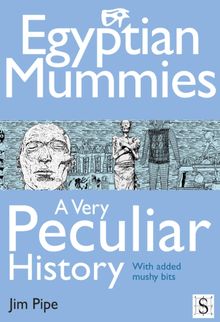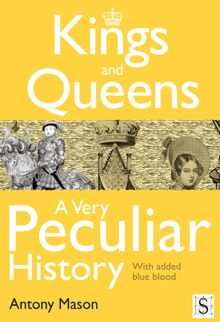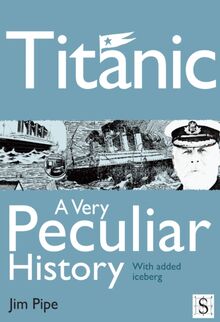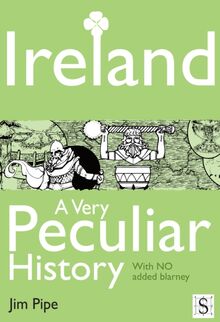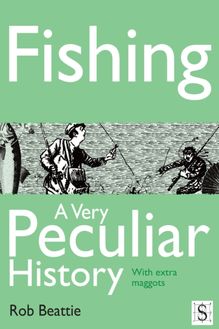-
 Univers
Univers
-
 Ebooks
Ebooks
-
 Livres audio
Livres audio
-
 Presse
Presse
-
 Podcasts
Podcasts
-
 BD
BD
-
 Documents
Documents
-
- Cours
- Révisions
- Ressources pédagogiques
- Sciences de l’éducation
- Manuels scolaires
- Langues
- Travaux de classe
- Annales de BEP
- Etudes supérieures
- Maternelle et primaire
- Fiches de lecture
- Orientation scolaire
- Méthodologie
- Corrigés de devoir
- Annales d’examens et concours
- Annales du bac
- Annales du brevet
- Rapports de stage
La lecture à portée de main
Vous pourrez modifier la taille du texte de cet ouvrage
Découvre YouScribe en t'inscrivant gratuitement
Je m'inscrisDécouvre YouScribe en t'inscrivant gratuitement
Je m'inscrisEn savoir plus
Vous pourrez modifier la taille du texte de cet ouvrage
En savoir plus

Description
Sujets
Informations
| Publié par | Andrews UK |
| Date de parution | 22 mars 2012 |
| Nombre de lectures | 0 |
| EAN13 | 9781908759856 |
| Langue | English |
Informations légales : prix de location à la page 0,0300€. Cette information est donnée uniquement à titre indicatif conformément à la législation en vigueur.
Extrait
Title Page
FISHING, A VERY PECULIAR HISTORY
With extra maggots
Written by
Rob Beattie
Created and designed by David Salariya
Publisher Information
First published in Great Britain in MMXII by Book House, an imprint of
The Salariya Book Company Ltd
25 Marlborough Place, Brighton BN1 1UB
www.salariya.com
www.book-house.co.uk
Digital edition converted and distributed in 2012 by
Andrews UK Limited
www.andrewsuk.com
Editor: Jamie Pitman
Assistant editor: Jodie Leyman
© The Salariya Book Company Ltd MMXII
All rights reserved. No part of this publication may be reproduced, stored in or introduced into a retrieval system or transmitted in any form, or by any means (electronic, mechanical, photocopying, recording or otherwise) without the written permission of the publisher. Any person who does any unauthorised act in relation to this publication may be liable to criminal prosecution and civil claims for damages.
Every effort has been made to trace copyright holders. The Salariya Book Company apologises for any omissions and would be pleased, in such cases, to add an acknowledgement in future editions.
Visit our website at
www.book-house.co.uk
or go to
www.salariya.com
for free electronic versions of:
You Wouldn’t Want to be an Egyptian Mummy!
You Wouldn’t Want to be a Roman Gladiator!
You Wouldnt Want to Join Shackleton’s Polar Expedition!
You Wouldn’t Want to Sail on a 19th-Century Whaling Ship!
Dedication
For Chick, Ray, Sean and the chaps at Whitmore’s Lake for help and encouragement
RB
Quotes
‘I had been fishing for twenty three years before I made my first cast for a barbel. It was a revelation.’
The River Prince, Chris Yates
‘In any case, of one thing I am sure – there is no better psychologist than a fishing rod on this Earth.’
Fishing Days, Geoffrey Bucknall
‘Most anglers regard the catching of “specimen” fish – big fish – as something which hardly ever happens.’
Stillwater Angling, Richard Walker
‘I realised what I had to do. Beginning on Anzer, I would fly-fish from one end of Russia to the other.’
Hooked , Fen Montaigne
‘I say dad. It can pull! It’s run ten yards and not stopped yet!’
Fishing with Mr Crabtree in all waters , Bernard Venables
British record list
All weights measured using the traditional imperial scale of pounds, ounces and drams.
Barbel 21 pounds, 1 ounce, 0 drams – 2006
Grahame King, Great Ouse, Adams Mill, Beds.
Bleak 0 pounds, 4 ounces, 9 drams – 1998
Dennis Flack, River Lark, Cambridgeshire
Bream (bronze) 19 pounds, 10 ounces, 0 drams – 2005
James Rust, Cambridge stillwater
Bream (silver) 2 pounds, 15 ounces, 0 drams – 2009
Phil Morton, Mill Farm, Pulborough, W. Sussex
Bullhead 0 pounds, 1 ounce, 0 drams – 1983
R. Johnson, Green River, Nr Guildford, Surrey
Carp (mirror/common/leather) 67 pounds, 8 ounces, 0 drams – 2008
Austin Holness, Conningbrook, Nr Ashford, Kent
Carp (crucian) 4 pounds, 9 ounces, 9 drams – 2003
Martin Bowler, Yateley lake, Surrey
Catfish (Wels) 62 pounds, 0 ounces, 0 drams – 1997
Rich Garner, Withy Pool, Henlow, Beds.
Char (Arctic) 9 pounds, 8 ounces, 0 drams – 1995
W. Fairbairn, Loch Arkaig, Inverness, Scotland
Chub 9 pounds, 5 ounces, 0 drams – 2007
Andy Maker, Southern stillwater
Dace 1 pound, 5 ounces, 2 drams – 2002
Simon Ashton, River Wear, Co. Durham
Eel 11 pounds, 2 ounces, 0 drams – 1978
Steve Terry, Kingfisher Lake, Nr Ringwood, Hants.
Grayling 4 pounds, 3 ounces, 0 drams – 1989
S. R. Lanigan, River Frome, Dorset
Gudgeon 0 pounds, 5 ounces, 0 drams – 1990
D. H. Hull, River Nadder, Sutton Mandeville, Wilts.
Perch 6 pounds, 3 ounces, 0 drams – 2011
Neill Stephen, Stream Valley Lakes, E. Sussex
Pike 46 pounds, 13 ounces, 0 drams – 1992
Roy Lewis, Llandegfedd Reservoir, S. Wales
Roach 4 pounds, 4 ounces, 0 drams – 2006
Keith Berry, Northern Ireland stillwater.
Rudd 4 pounds, 10 ounces, 0 drams – 2001
Simon Parry, Freshwater Lake, Co. Armagh, NI
4 pounds, 10 ounces, 0 drams – 2001
Simon Parry, Clay Lake, Co. Armagh, NI
Ruffe 0 pounds, 5 ounces, 4 drams – 1980
R. J. Jenkins, West View Farm, Cumbria
Salmon 64 pounds, 0 ounces, 0 drams – 1922
G. W. Ballatine, River Tay, Scotland
Tench 15 pounds, 3 ounces, 6 drams – 2001
Darren Ward, Sheepwalk big pit, Shepperton, Middlesex
Trout (brown) 31 pounds, 12 ounces, 0 drams – 2002
Brian Rutland, Loch Awe, Argyll, Scotland
Trout (rainbow) 33 pounds, 3 ounces, 0 drams – 2003
J. Lawson, Watercress Trout Fishery, Devon
Trout (sea) 28 pounds, 5 ounces, 4 drams – 1992
J. Farrent, Calshot Spit, River Test, Hampshire
Zander 21 pounds, 5 ounces, 0 drams – 2007
James Benfield, River Severn at Upper Lode
Quotes (2)
‘To read a fishing book is the next best thing to fishing. It is like talk in the fishing inn at night.’
Rod and Line , Arthur Ransome
‘Foamy tides like snowdrifts lingering
A battalion of plum trees silently blooming
A bottle of wine and a fishing line
Who in the world is my equal?’
Li Yu c.900 AD
Introduction: First Casts
You don’t choose fishing. Fishing chooses you. There comes a moment in every angler’s life when the things around them – the water, the wind at their back, the sun on their shoulders, the float that was dancing merrily down the steam and is now suddenly gone – fall into place, like the pieces of a puzzle. At that moment, everything makes sense – even the things that don’t make sense. And whether you catch that fish or the next one or the one after that, you know it will never be enough. An angler you shall be.
Early evidence
Mankind has been catching and eating fish since records began – though it was considered a food of pretty much last resort by Homer in the Odyssey . Fishing has also been used instructively – witness Job’s admonishment that he may as well ‘try and catch Leviathan with a hook as thwart God’s will’, a reference that also persuades scholars it wasn’t just nets that were being cast out to sea.
As well as wriggling on the end of a line or served up steaming on a plate with a few fresh greens, fish have traditionally enjoyed a rich symbolic life. We’re told that they were the first creatures to appear when the earth was created, Jesus chose them to demonstrate a miracle at the feeding of the 5,000, and later, ichthys , the Greek word for fish, was adapted as a cipher for ‘ I esous C hristos T heou Y ios S oter ’ or ‘Jesus Christ, God’s Son, Saviour’ and used as a sort of secret handshake when persecuted Christians met for the first time.
Perhaps when early man caught and ate fish, he was after more than simply sustenance? Fish turn up all over Europe as symbols for wisdom and it’s clear that the Celts felt that the salmon in particular might even have powers of prophecy. Maybe that’s why the salmon occupies such an elevated position among modern anglers; it certainly helps to explain why salmon anglers think they’re better than the rest of us.
Species profile: The bleak
Irritating little silver fish found in rivers that grows to a few ounces and specialises in taking baits meant for its more interesting (and usually larger) brothers and sisters. Inexperienced eyes may mistake it for a small dace but while that has an attractive, subtle colouring and an air of purpose, the bleak resembles a tiny herring that hasn’t a clue what it’s doing.
Good for: Nothing (oh alright, it’s good for beginners).
Here comes the hook
Early hooks were actually small pieces of bone, horn, shell or stone sharpened at both ends, smeared with something tasty and then tied to the end of a cord or sinew which was in turn either held in the hand or secured to the bank. Toss it in the water and when the fish tries to swallow it, the line pulls taut and the business end (or gorge) gets caught in the fish’s throat. Interestingly, the device used by modern anglers to remove hooks is still called a disgorger.
It’s also been suggested that thorns may have been used as early hooks, while we know that Native Americans made use of the claws and beaks of birds of prey to catch fish in the same way. The Scandinavians were also fond of a good hook, as archaeological finds near Stavanger, Norway testify; these bone hooks are between seven thousand and eight thousand years old and rudimentary compared with later discoveries from down the road near Bergen, which demonstrate beautiful workmanship and are some of the earliest hooks to feature barbs.
By 2,000 BC, the Egyptians were – as usual – miles ahead of the rest of the ancient world. Tombs from the 12th dynasty depict men fishing with rod, line and hook (probably made of copper, without a barb) a good thousand years before even the Chinese got in on the act. By the Middle Ages, hook-making had become a saleable skill and far-sighted anglers had also begun to realise that you didn’t have to bait a hook to catch a fish – you could also disguise it as something they liked to eat. Fly fishing was born.
Easter Island
One of the lesser mysteries of Easter Island or Rapa Nui (i.e.
-
 Univers
Univers
-
 Ebooks
Ebooks
-
 Livres audio
Livres audio
-
 Presse
Presse
-
 Podcasts
Podcasts
-
 BD
BD
-
 Documents
Documents
-
Jeunesse
-
Littérature
-
Ressources professionnelles
-
Santé et bien-être
-
Savoirs
-
Education
-
Loisirs et hobbies
-
Art, musique et cinéma
-
Actualité et débat de société
-
Jeunesse
-
Littérature
-
Ressources professionnelles
-
Santé et bien-être
-
Savoirs
-
Education
-
Loisirs et hobbies
-
Art, musique et cinéma
-
Actualité et débat de société
-
Actualités
-
Lifestyle
-
Presse jeunesse
-
Presse professionnelle
-
Pratique
-
Presse sportive
-
Presse internationale
-
Culture & Médias
-
Action et Aventures
-
Science-fiction et Fantasy
-
Société
-
Jeunesse
-
Littérature
-
Ressources professionnelles
-
Santé et bien-être
-
Savoirs
-
Education
-
Loisirs et hobbies
-
Art, musique et cinéma
-
Actualité et débat de société
- Cours
- Révisions
- Ressources pédagogiques
- Sciences de l’éducation
- Manuels scolaires
- Langues
- Travaux de classe
- Annales de BEP
- Etudes supérieures
- Maternelle et primaire
- Fiches de lecture
- Orientation scolaire
- Méthodologie
- Corrigés de devoir
- Annales d’examens et concours
- Annales du bac
- Annales du brevet
- Rapports de stage
